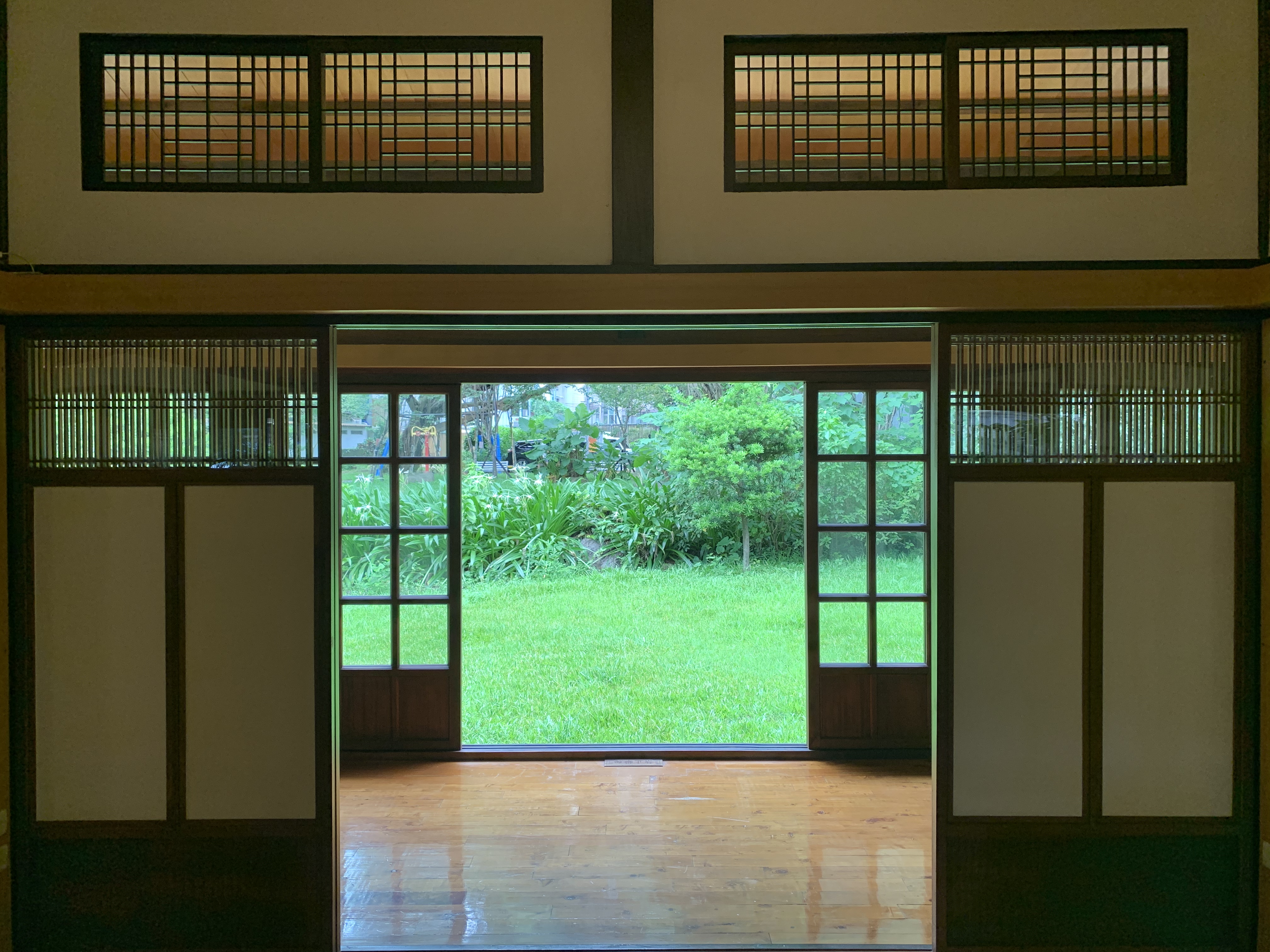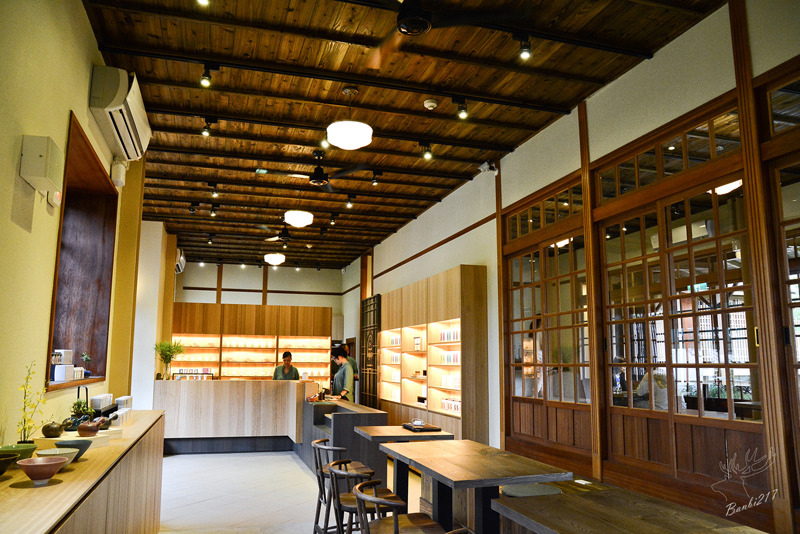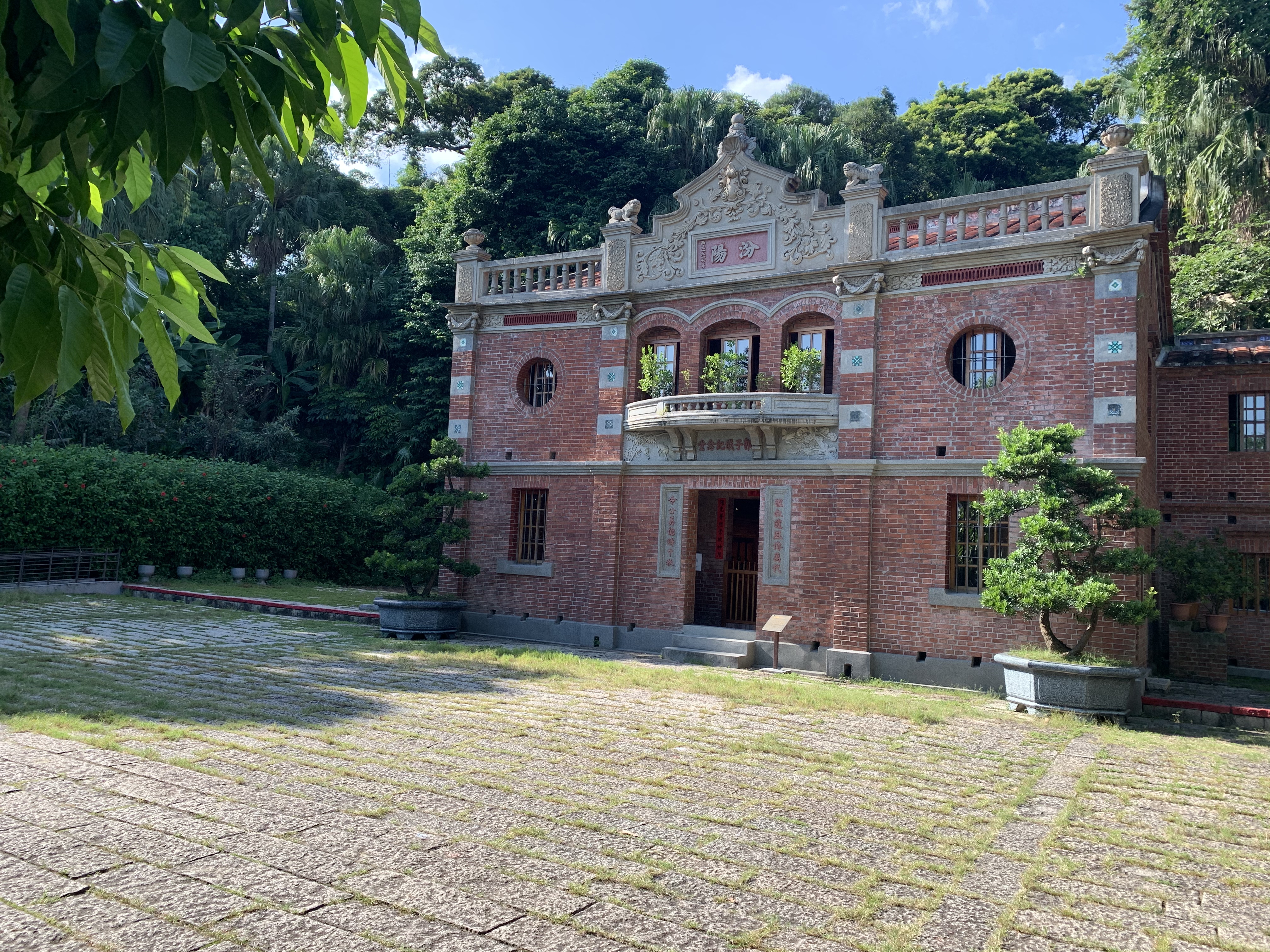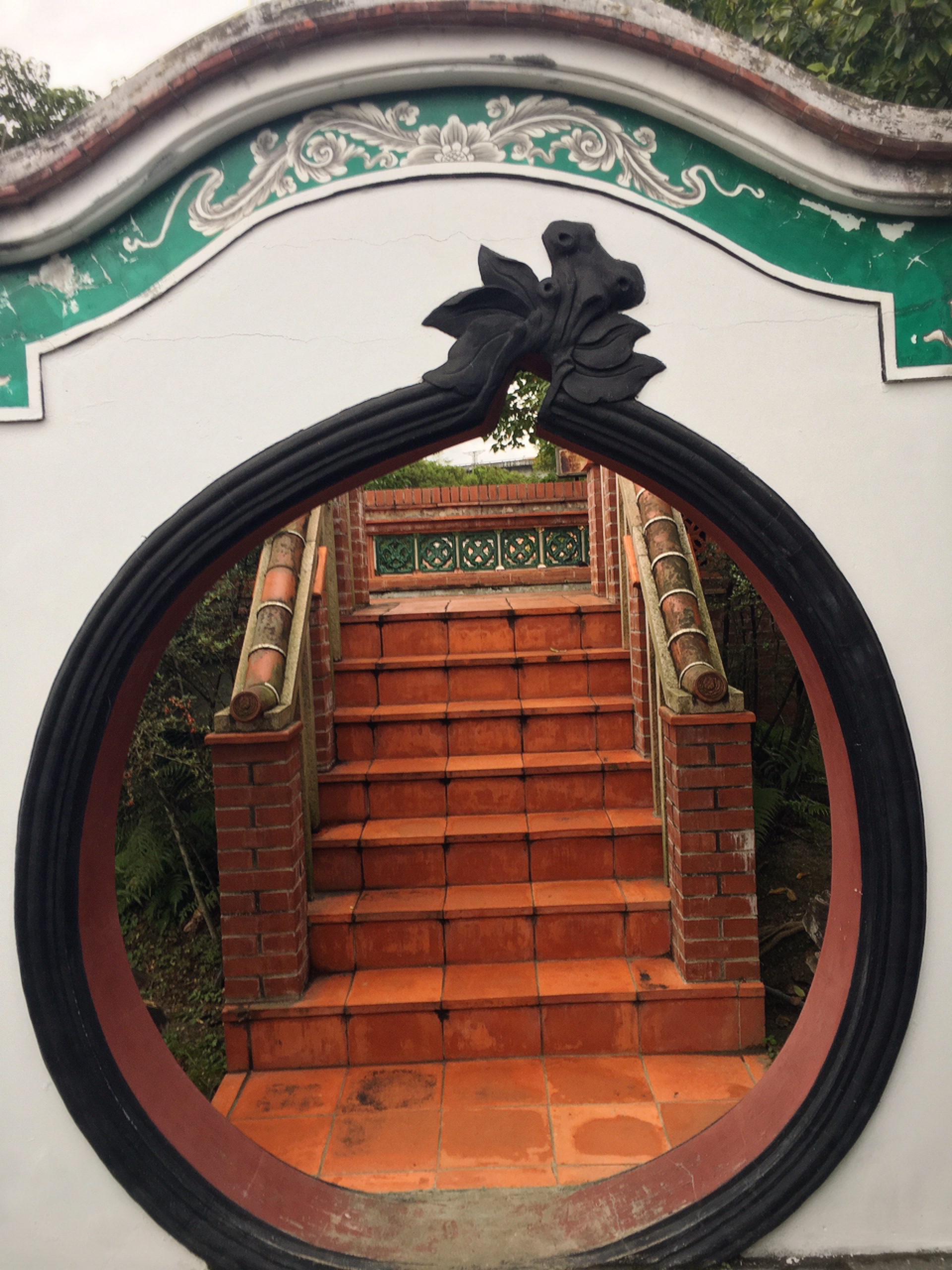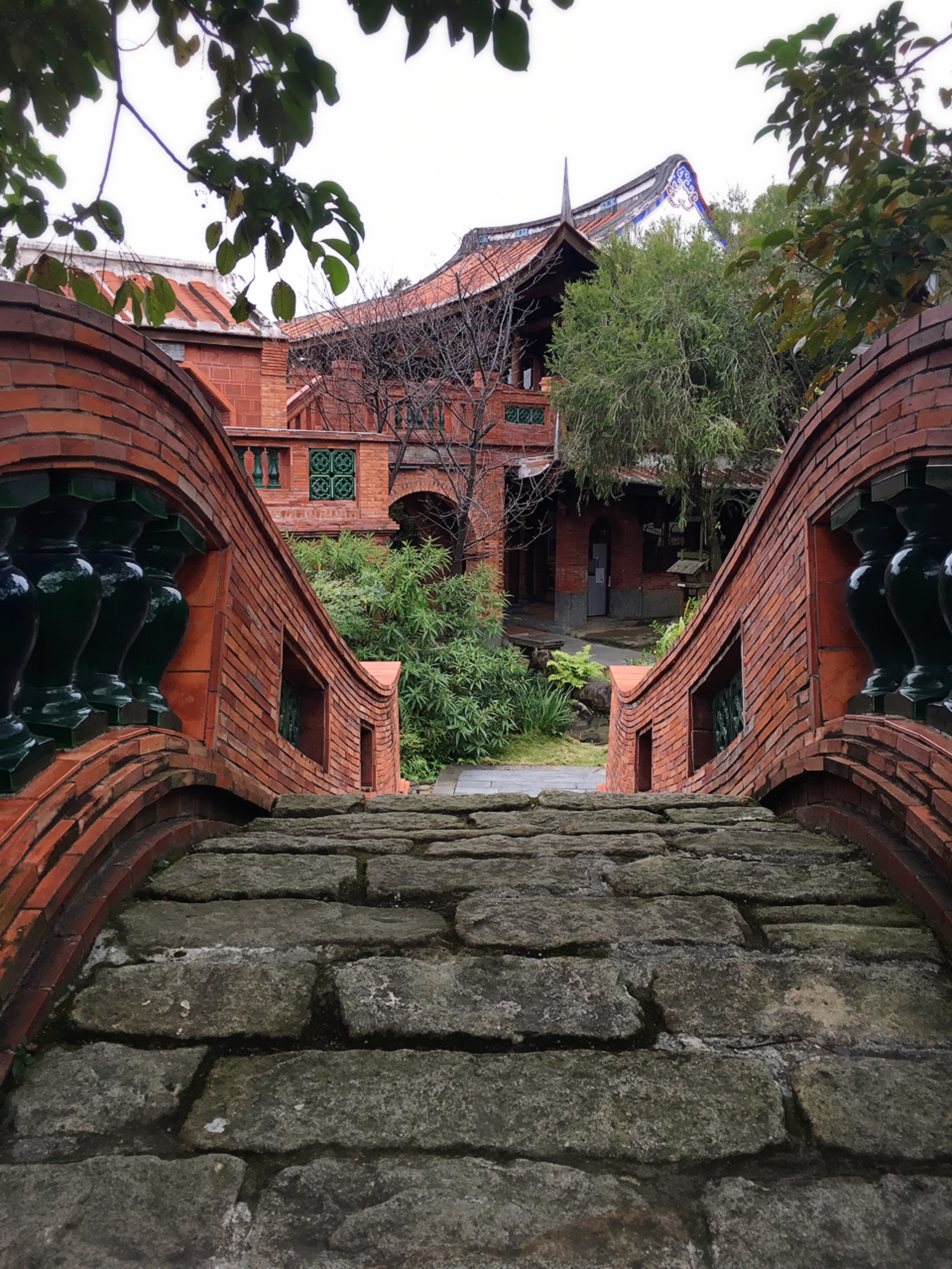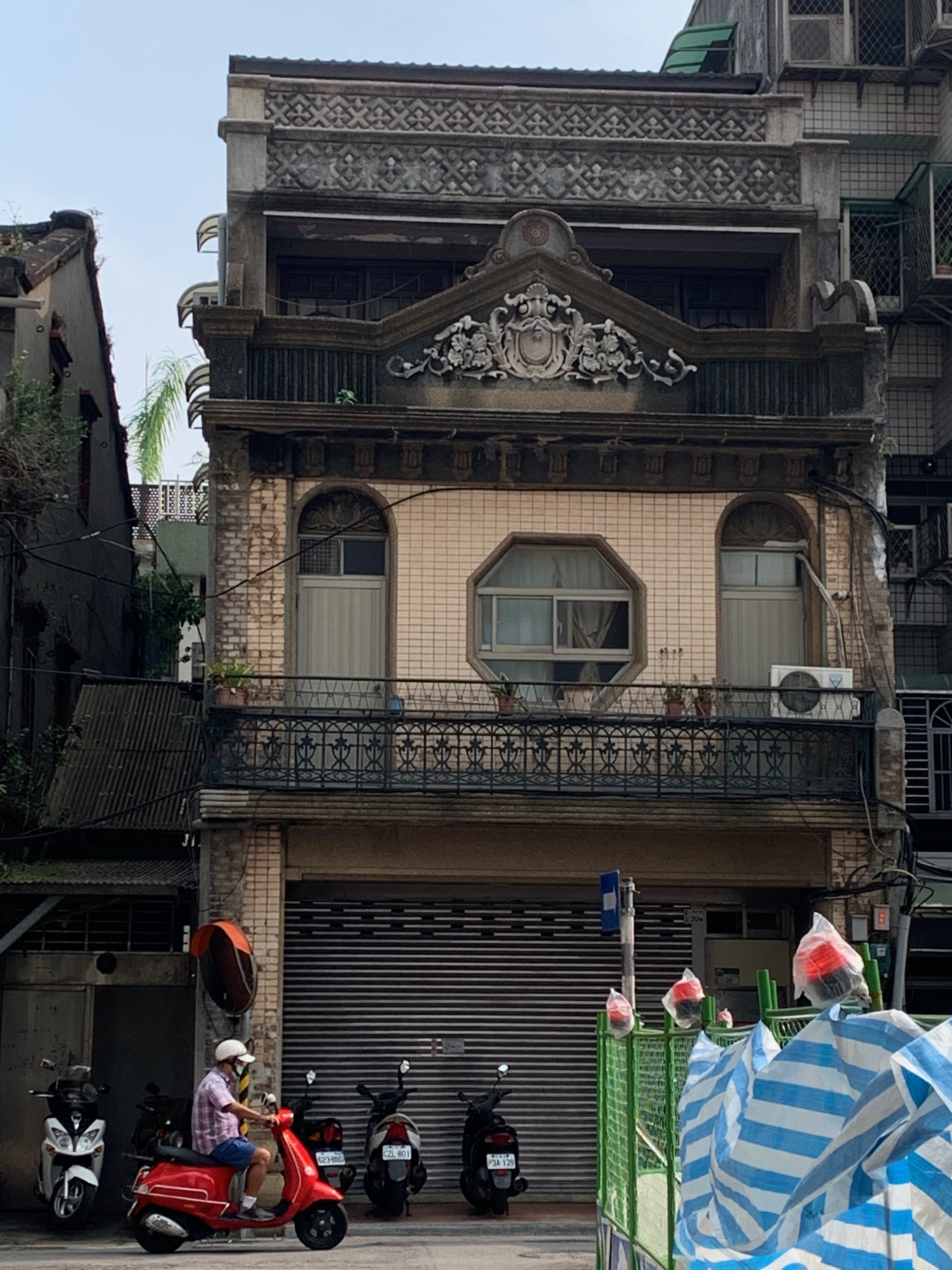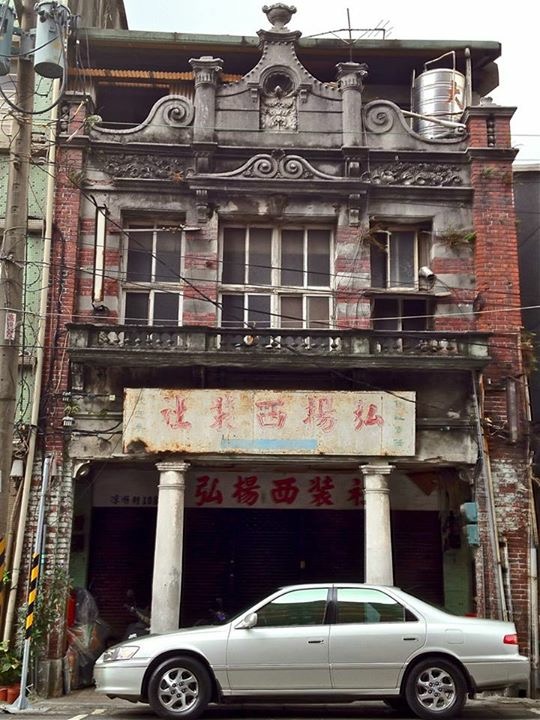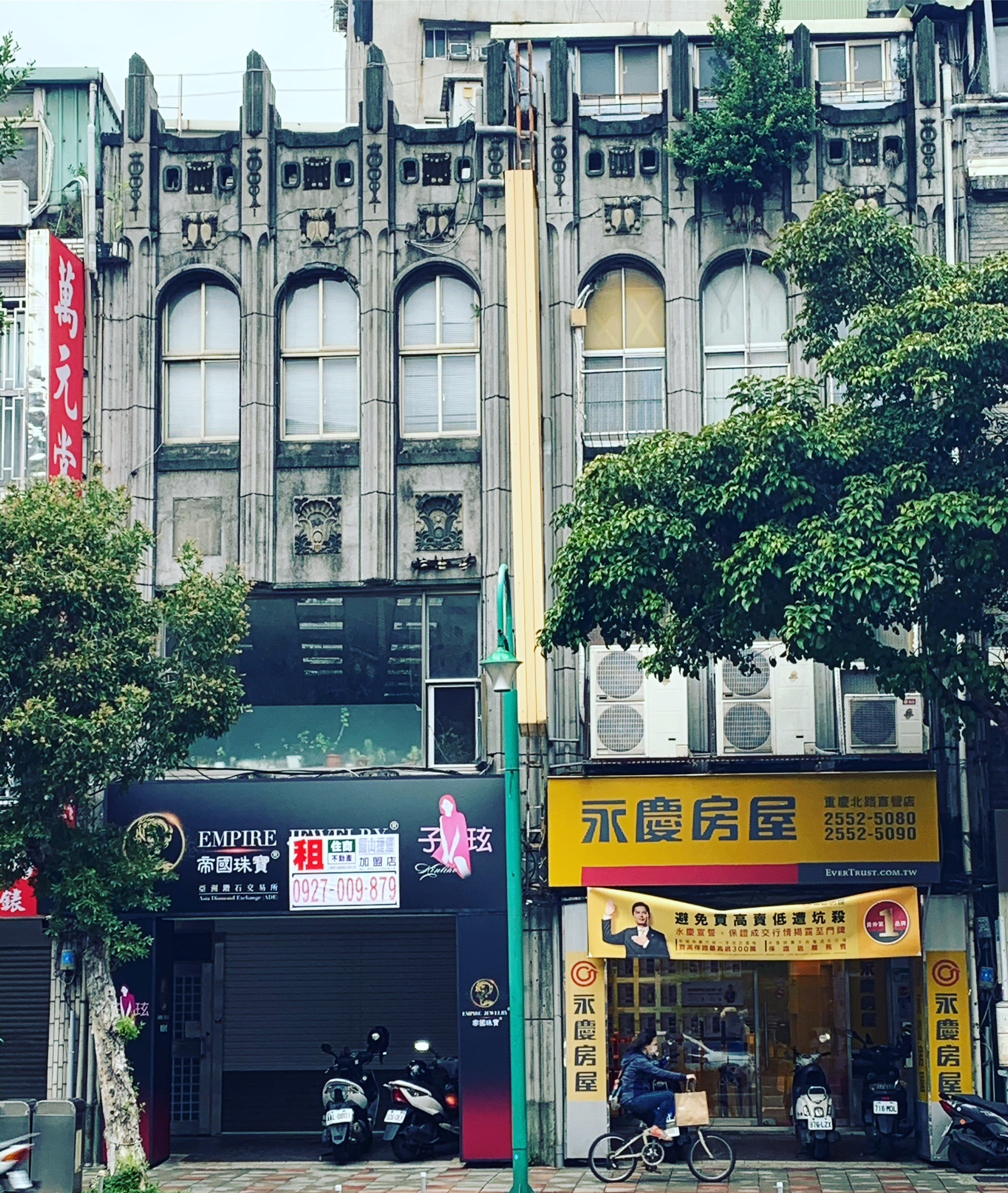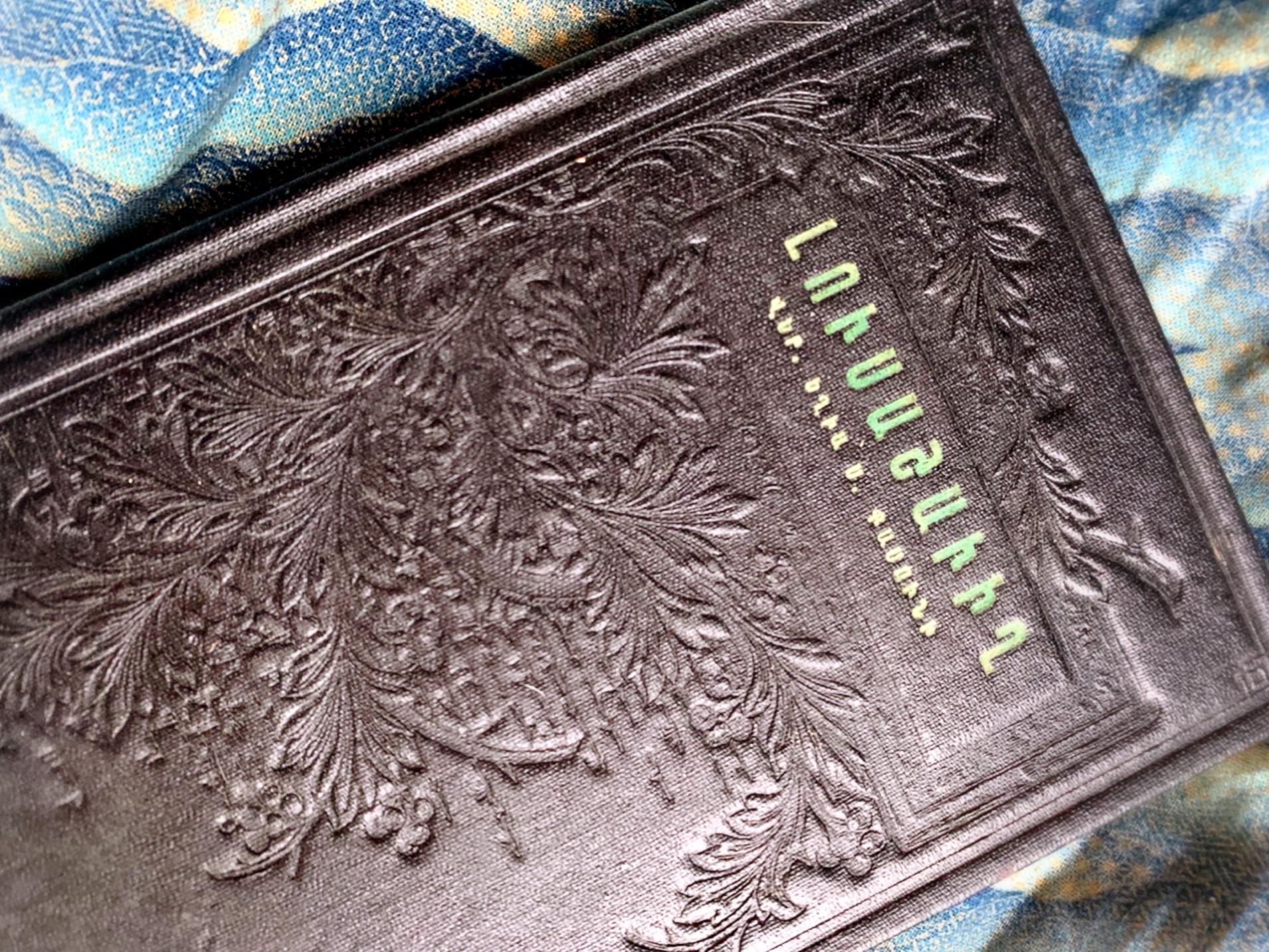First, a quick life update: I have COVID! So, depending on how that turns out, you can either expect lots of posts as I don't have much to do, or nothing because I don't feel well (right now I'm doing alright).
Now, on to the actual post.
In recent years, Taipei has been working practically in overdrive not just to preserve the heritage architecture that remains, but (for the most part) turn these old buildings into useful or interesting public spaces.
You surely know some of these already -- Huashan and Songyan Creative Parks, Bopiliao, Dihua Street and -- well, so many that it'd be impossible to list them all. A few are privately owned: Leputing is housed in a Japanese-era dormitory for government officials, built in the 1920s and renovated with government subsidies. Fireweeds offers more traditionally Japanese fare, in a smaller-scale building. I used to frequent Cafe Monument when I had a reason to be in that area. Nobody who knows a thing about Taiwanese history is unaware of Wistaria House (though it can be hard to get a table).
Others have been more recently renovated. As such, they're less well-known.
I've been spending a lot of time these past few years writing about these places (among other topics) for Taipei Magazine. That's not a plug -- the point is, I spend a lot of time visiting these places because the city government wants to get the word out. It's been an enjoyable enough series of assignments that I thought I'd summarize some of my favorites, with a few picks of my own.
Some of the links lead back to my own writing, some to other sites -- I wanted to offer a list of my favorites (including places I've visited on assignment) rather than just hawk my own work. Not every item comes with photographs: I simply can't find all of my own pictures. I'm not sure it matters much -- I'm not the best photographer.
This is by no means a definitive list. I'm giving the places above the short shrift, and leaving out Beitou and Shezi completely. Old favorites, like the Xiahai City God Temple, Bao'an Temple and Qingshan Temple didn't make it in. There are enough Japanese-era residences around NTU and Shi-da alone to create an entire post. I didn't include the 228 Museum because I wanted to add at least one picture to that, but I don't have any (it will feature in an upcoming post on all the museums you can visit if you don't want to go to the National Palace Museum again).
That's okay -- I can't cover everything, so let's focus on what I can do!
Also called the "Literature Forest", this renovated section of a 1917 Japanese riverside banquet hall -- much of which was destroyed in a fire decades ago -- offers a calm spot for relaxation, a shop, cafe and event space. The massive banyan trees lend themselves to the 'forest' part of the site's name, and novelist Wang Wen-hsing lived here for a time, hence the connection to literature. In fact, much of the Taiwanese novel Family Catastrophe was set here.
Taiwan Literature Base and surrounding neighborhood (same link as above)
Near Huashan Creative Park, the Taiwan Literature Base is housed in a series of dormitories once occupied by Japanese civil servants, first in the Japanese era and for a period, ROC government workers as well. It was left abandoned for some time before being designated as a historic site and renovated. Qidong (Chitung) Street is much older, however: it was used as a transit route for goods headed to the port of Keelung during the Qing Dynasty and Japanese colonial era. Now, the dormitories house exhibits, spots for reading -- including one filled with books in Taiwanese and Hakka -- or just places to hang out, in a quiet complex with plenty of outdoor seating.
There's more to this neighborhood than just the dormitories, however. Other renovated Japanese era buildings house the Taipei Qin Hall (also called Taipei Calligraphy Academy) the residence of Li Gwoh-ting. Both of these host events, exhibits and activities.
Tip: for this and Kishu An, bring bug spray. It turns out that shady banyans attract mosquitoes.
This has gotten quite a bit of press since opening in 2020, but I wanted to include it as not only a recent renovation, but also one of my favorite visits. With an Art Deco entrance, cypress from Alishan, a Beaux Arts conference room, and exhibits on railway history, there's a lot to see here. Buildings outside have a lot of history to explore as well. It's become one of my top recommendations for very hot or rainy days, if you want to get out of the house, explore a historic site, and have enough to keep you engaged for the day.
Futai Street Mansion
Walking down Yanping Street one day, I passed this smallish historical building and found, to my surprise, that it was open to the public. This simple European-style commercial building (it was built in 1910 to house the offices of a Japanese construction company) holds a place in my memory in part because I found it on my own; no guidebook or brochure mentioned it, and I wasn't asked to go there to write about it. Constructed of stone from Qili'an in northern Taipei with a ceiling of Taiwanese cypress, it's the only commercial building left on Yanping Road, which was once lined with them. It houses a gift shop and as of my last visit, a small cafe as well. Renovation and management was conducted by the same person who manages the Taipei Story House near the Fine Arts Museum. I appreciate the warm cypress scent that wafts through the building; you'd hardly think that this was used as accommodations for high-level ROC officials -- it looks like it was always meant to be a commercial building on a commercial street.
Nishihonganji
Built in the early 1900s, was originally a Buddhist monastery and temple that served as a Taiwan-based chapter of a Japanese Shin (or Pure Land) Buddhist order. When I first moved to Taiwan in 2006, I remember coming across it in disrepair, but in the years since it's been renovated and turned into a popular attraction. The bell tower is especially nice, though I remember it most fondly as one of the first historic sites I came across in Taiwan that was later renovated. The architectural designs are eclectic, and the head priest's residence (the rinbansho or rinbansyo)
is now a teahouse called, predictably, Rinbansyo and is built and decorated in a thoroughly traditional Japanese style. I've been, and I recommend it!
(On a personal note, Rinbansyo holds a lot of sad and nostalgic memory for me, as the one time I went, I was with a friend who later passed away of a heart condition. It was the last time I saw her. I should go back, but I haven't yet.)
In my first years in Taiwan, North Gate was that incongruous little square building with the traditional-style roof that few paid attention to. Why? Because it sat right next to a massive highway ramp. When I had a class in Wugu, a student would drive me back to Taipei Main Station and I'd always notice how pretty that old Minnan-style roof looked, silhouetted by the city lights beyond. It was hard to get close to the actual gate, though, and on the ground its surroundings drained its attractiveness.
Friends began pointing out the gate's significance. As one of the only relics of the Taipei city walls (constructed just before the Sino-Japanese war in the late 1900s, and demolished very soon after by the incoming Japanese), and as the only Taipei surviving city gate retaining its original southern Chinese form. The others were renovated (retconned) into the bright red-and orange northern Chinese style buildings the KMT plonked on Taiwan to make it seem not just 'Chinese' but the specific kind of "Chinese" aesthetics they preferred. That is, not simple, elegant Southern Min brick.
Imagine my shock when one day I walked by that intersection to see the ramp gone, and pedestrian friendly walkways allowing one to truly admire this forgotten old gate in the shadow of an overpass. But of course people hadn't forgotten; it took awhile to do the right thing and give North Gate its due.It took breaking the KMT domination of the Taipei mayorship and showing that in fact, a simple, local-style gate can be more lovely than the most firecracker-red columns you can out up to push your view of history on the people.
It's small, and takes just a moment to walk through. But you can walk through it now, and that wasn't always the case. And that's what matters.
Taipei Info Hub
Not far from Futai Street Mansion (you can walk between the two by crossing under North Gate), Taipei Info Hub is a recently-renovated warehouse building housing various exhibits on the first floor, with a second floor event space. Built in 1913 for the erstwhile Mitsui & Co (no relation to the current company), Taipei Info Hub also houses a cafe with ample seating in an area where there were once very few food and drink options. Interestingly, the semicircular gable that graces the building now isn'r original; the original was deemed too vulnerable to be left in position and is now on display inside the building.
National Center of Photography and Images
In the same article linked above, I wrote about NCPI -- the National Center of Photography and Images. In the same neighborhood as the Railway Department Park, North Gate, Futai Street Mansion and Taipei Info Hub.
You probably know this building; very near Taipei Main Station, it was designed by architect Setsu Watanabe and built in 1937. It's certainly got Japanese influences in the roof design -- note the distinctive turret -- but was also designed to be simple and modern. Originally an office for the Osaka Mercantile Co., the turret was eventually lopped off in order to build a fourth story, during the period when it housed the Provincial Highway Bureau. During renovations, Watanabe's original intent was coaxed back into existence, with the turret replaced.
Now, NCPI hosts rotating exhibits on photography in Taiwan's history. Not everything is subtitled in English, but enough is to enjoy yourself. While enjoying the exhibits, be sure to take in some of the other Art Deco details of the building, especially the stairway.
The first floor also houses a minimalist cafe and interesting gift shop. (I bought a Furoshiki Shiki miscellaneous goods bag, because I thought the design was cool.)
New Culture Movement Museum
One thing I love about Taiwan: when dealing with the renovation of historic sites that evoke painful memories of colonialism and brutality, the current government has not shied away from re-imagining them as spaces to talk about Taiwan's history on its own terms, while reminding people of the original purpose of the sites. Nowhere is this more evident than in the Japanese-era police stations in Taipei and Tainan. Tainan uses its old police station as part of a fine arts museum complex, exhibiting fine artwork specifically from Taiwan which evokes the Taiwanese experience through history and today.
In Taipei, this means using an old police building to house a New Culture Movement museum. When I went, the current COVID outbreak was just starting to become a concern, and the place was deserted. While that's probably due to the pandemic, I also worry that news of the museum's existence hasn't gotten around yet, either. That's a shame, because in addition to exhibits about the New Culture Movement (which was strongly tied to the Home Rule movement of the time), the building itself is of historic interest. From my article:
Built in 1933, the station also served as a detention center. In the ensuing decades, the edifice was replaced with red tiles and a third story was added. Renovations began in 2014, and the choice of exhibit was intentional: Taiwan Cultural Association (台灣文化協會) founder Chiang Wei-shui (蔣渭水) had been imprisoned at the station’s former site in the 1920s. The New Cultural Movement in Taiwan encouraged understanding of Taiwanese culture and history through performances, lectures, essays and a newspaper, the Taiwan People’s News (台灣民報).
This is another one of those city government initiatives aiming to renovate Taipei's historic sites and re-make them into usable spaces for contemporary times. POPOP was once a bottle cap factory in Nangang, a part of the city that, to be honest, doesn't have a lot going on (though if you find yourself there, the Academia Historica museum is interesting, and there's an old family mansion near the Academia Sinica).
Unlike, say, the creative parks at Huashan and Songshan, POPOP is a fairly new project, and hasn't quite taken off yet thanks to the pandemic -- but hopefully, it will. Instead of following the old 'creative and culture park' model, POPOP was conceived as a 'maker space', with the main part of the old factory buildings turned into a single long workspace with tables, counters, outlets -- you know, a space for makers. There's not a lot going on yet, but check back in a few years.
For the casual visitor, there's also a cafe, a sake bar and an antique shop in addition to some small but pleasant outdoor spaces.
U-mkt
From the same article above, the Shintomicho Cultural Market (U-mkt) can be found at the other end of the MRT's blue line, near Longshan Temple and Bopiliao. Built in 1935, commercial operations ceased in the unique U-shaped building in the 1990s. Xinfu Market, however, still bustles around it, and is interesting both when open and closed (as the pull-down garage doors on the shops are covered in colorful graffiti). Today, U-mkt has exhibits on the building's past, kitchen and lecture spaces and two cafes, one in the curve of the "U" and the other in the Japanese-era office just outside.
This Art Deco building caught my eye in a book of Taipei heritage buildings. Looking one weekend day for something to do, I suggested to Brendan that we head up to Neihu just to have a look. After all, we rarely get up that way; there just isn't that much to do in Neihu if you don't live there! We weren't able to enter the building, and frankly, the façade is probably the most interesting thing about it. Built in 1930, it's one of the few Japanese-era buildings that isn't done in the "baroque" style reminiscent of British colonialism, but straight-up Art Deco, complete with 'air defense' tiles which were probably more for decoration than actual camouflage.
It's worth coming up here, though, as you can combine it with a visit to visit the Kuo ancestral shrine (below).
Kuo Family Shrine
This gem of a building is designed more in the Japanese Baroque style that is so common in Taiwan than the Neihu Assembly Hall, and is linked with it above. Hiking up the steps to get to this hilltop mansion, you'd never know that it's right next to an MRT station. Unlike the assembly hall, the family mansion is open most days, and is pleasant to wander around. It's also the headquarters of the World Kuo Family Association, has some Tang-dynasty tablet rubbings, and features a shrine to the most famous Kuo -- Kuo Ziyi. Though he's claimed as the ancestor to all people surnamed Kuo, that's likely not the actual case.
Sun Yat-sen Memorial House / Yixian Park / Umeyashiki
Can you imagine someone living in Taiwan for almost 15 years, and not visiting this site? Well, that was me. Next to Taipei Main Station, this was a restaurant and guesthouse during the Japanese Era, where Sun Yat-sen apparently spent a night (also, it's apparently been relocated from its original site nearby).
After so many years of seeing the walls keeping this small park and building from the noise and traffic outside, I finally popped in one day when I had nothing else going on, and had just had lunch with a friend nearby. I ended up spending much of the afternoon just sitting and relaxing. The Japanese-style building itself houses a small exhibition related to Dr. Sun, and the garden around it is landscaped in a Chinese style. A brochure describes it as a fusion of the two styles -- Japanese and Chinese -- with some sort of metaphorical link to Taiwan and fusion of the two cultures.

I don't care much for the metaphor, but it is a pleasant spot. Perhaps sit and reflect on how the "father of modern China" (or something) visited Taiwan, stayed here, and never said a thing about Taiwan being Chinese. To Sun, Taiwan was very obviously Japanese. Now consider how China views its 'claim' to Taiwan as something historic -- the evidence is apparently 'antiquity' itself.
Does that claim seem particularly legitimate in light of what you've just learned? I hope not!
The Lin Antai Mansion
Competing with other old family mansions such as the Banqiao Lin Family Garden in New Taipei, the Li Family House in Xinzhuang and the Wufeng Lin Mansion just outside Taichung city, the Lin Antai house is probably the best-preserved old mansion in Taipei. It took me years to visit, simply because it's not close to anything else and not particularly close to an MRT (some bus lines run up to that corner of the city, but that's about it). I enjoyed it immensely when I did, however. Fun fact: the house used to be located on what is now Dunhua South Road. I saw the original site on an old map once, and it wasn't far from MRT Technology Building -- it's surreal to think the whole thing got moved up to the riverside.
Ciyun Temple (慈雲寺)
We found this temple so many years ago that the photos I took got lost somewhere in the shuffling of files from old computers to new. I remember it though, because in a district full of flashier and more famous temples, this simple brick structure felt like a throwback, or at least a very unpretentious example of its type. The old brick arcades certainly give the area the feel of a time long past. Built in 1924 with private funds, it was on newly reclaimed land behind what is now Ximenting when first constructed. Now, the temple lives on, but seems to be bookended with hip-looking cafes. I don't mind, that, really.
If you make your way from some of the sites around Taipei Main to Ciyun Temple, you'll find yourself walking through Ximen, which is an interesting way to spend a day regardless of your destination. There's plenty to see in the area, and if you aim your walk in the direction of Zhongshan Hall and some of the other historical sites and temples I've skipped, you'll also pass one of my favorite old houses:
I don't think there's anything especially historic about it, I just think it looks cool.
In fact, although it's often labeled an unattractive city, Taipei has lots of architecture that is in fact quite interesting:

